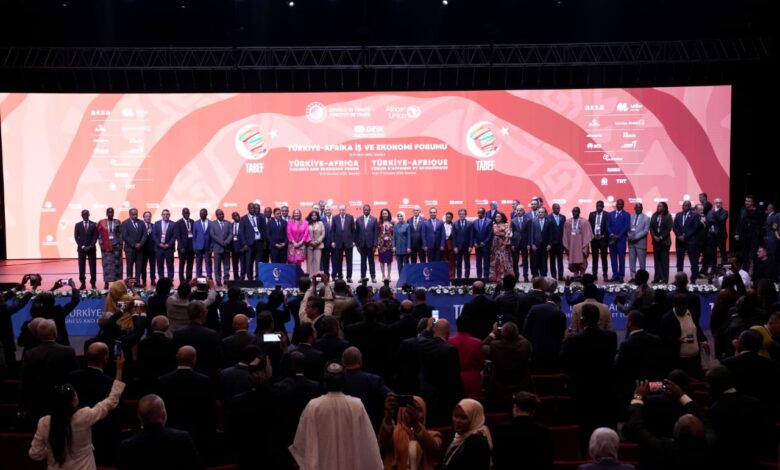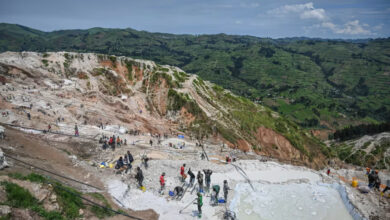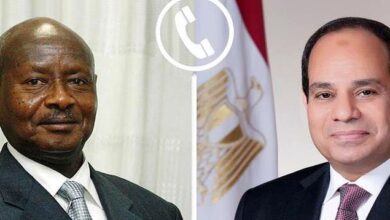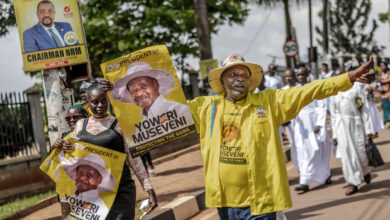
The Turkish-African Business Forum, held in Istanbul, recommended combating poverty and hunger in Africa, alongside better utilizing its rare natural resources in local production without exporting them abroad, in addition to working on the slogan “Made in Africa.”
This came during the closing of the forum’s activities, which were hosted by the Ministry of Trade, coordinated by the African Union, and attended by Turkish President Recep Tayyip Erdoğan, South African Deputy President Paul Mashatile, and African Union Commissioner for Economic Development and Trade Francisca Tatchouop Belobe.
Turkey’s leader said he prefers joint work with Africa based on mutual interest and benefit, citing the proverb, “If you want to walk fast, move alone. If you want to reach your goal, move with a team.”
He added that his nation’s national income has reached $1.5 trillion, and the central bank’s reserves have reached $189.7 billion.
Praising the role his country plays in the G20, where it ranks 17th among the world’s largest economies, adding that the country’s GDP has increased from $238 billion in 2002 to $1.5 trillion by 2024.
The number of tourists has increased from 15 million to 62.27 million, with tourism revenues exceeding $61 billion.
The Chairperson of the African Business Council, Amani Asfour, said that Turkey has long been a reliable partner in supporting Africa’s development journey, adding that the partnership between Ankara and Africa offers significant opportunities for industrialization and technology-based transformation.
She noted that Africa still has an economic structure that relies on raw material exports.
Noting that cooperation with Turkey would accelerate this transformation, she continued: “Across Africa, 70 percent of cancer patients die due to a lack of radiotherapy and diagnostic equipment, and Turkish knowledge and technology can play a crucial role in developing the healthcare sector.”
South Africa’s Deputy President, Paul Mashatile, said that his country’s presidency of the G20, which it has held since December 2024, represents a historic opportunity to transform global governance and strengthen the voice of the Global South.
He noted that the group represents approximately 85 percent of the global economy, 75 percent of trade, and two-thirds of the world’s population.
Therefore, the African Union’s participation in the G20 as a permanent member is of great importance, adding that Africa plays a crucial role in the global transformation in the field of energy and green manufacturing.
He added that the focus was on increasing resilience to disasters and ensuring sustainability in low-income countries, while mobilizing financing for a just energy transition and harnessing vital minerals to achieve inclusive growth.
The African Union Commissioner for Economic Development and Trade, Francisca Tatchouop Belobe, said that the average age of the continent’s population is 19.5 years, and the continent’s population is expected to reach 1.5 billion by 2050.
She added: “In the coming years, women and youth will constitute the majority of Africa’s population. This is of paramount importance to both the continent and the African Union.”
She pointed out that the size of the African economy is expected to reach $6.7 trillion by 2035, and emphasized that the African continent is open to foreign investment, which is rapidly increasing in the continent.
She stated that Africa attracted a record $97 billion in foreign direct investment in 2024.
Turkish Deputy Minister of Trade Özgür Volkan Agar said that Africa has begun to play a more active role in the international system and that the continent has become a regional power with increasing weight on the global stage.
This came during a symposium titled “The Turkish-African Logistics Center,” held during the forum’s activities.
He noted that Africa, with a population of approximately 1.5 billion, possesses geopolitical influence and rich subsoil resources.
The Turkish official indicated that Ankara views Africa based on friendship, partnership, and mutual benefit, and not for demands of oil, diamonds, gold, or iron. The relationship is based on a win-win principle, he added, noting that in 2024, 88 percent of exports were carried out by sea.
African ports are therefore crucial to the continuity of international trade, given their location at the crossroads of trade routes between Asia, Europe, and the Americas. These ports play a pivotal role in transporting raw materials from the African continent to the world.
Turkish Minister of Agriculture, Ibrahim Yumakli, said that about 673 million people are facing hunger, and 2.6 billion people face great difficulties in obtaining sufficient and safe food.
Food security is not something that falls on the shoulders of one country alone, but rather is the responsibility of all of humanity, he stressed.




